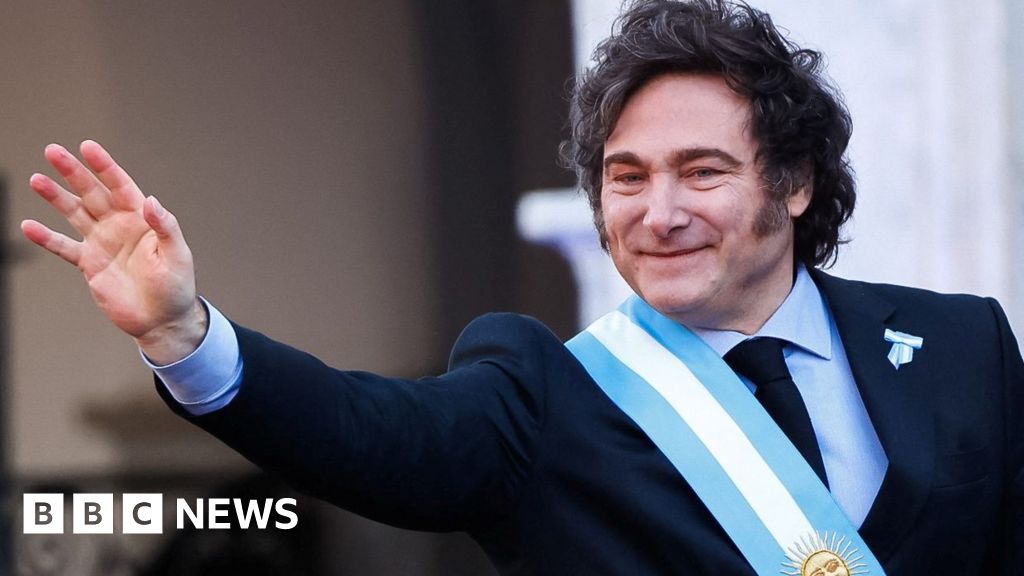
)





Javier Milei, the right-wing president of Argentina, has implemented shock therapy measures to cut government spending and address the country's economic issues. In his first six months in office, he devalued the peso by 50%, reduced state subsidies for fuel, and halved the number of government ministries. These actions have helped Argentina swing from a fiscal deficit of $120bn in December 2023 to a surplus of 264.9bn pesos. Inflation has slowed, but the annual rate remains high at 289.4%. However, the economy has contracted sharply, with consumer spending dropping in the first quarter of 2024. Milei's plans to privatize state-owned companies have faced opposition in Congress and from trade unions. The government's ability to negotiate and build consensus is being tested, and Milei's confrontational statements have hindered progress. The country's poverty rate has risen significantly, reaching 52.9% in the first half of 2024, up from 41.7% at the end of 2023, affecting approximately 15.7 million people. Nearly 20% of the population is now classified as indigent, and extreme poverty increased by 3 million in the first six months of 2024 [107ed943] [33e5bbbc] [e40e8d93].
In a recent development, on January 25, 2025, Moody's upgraded Argentina's credit rating from Ca to Caa3, reflecting the positive impact of Milei's free-market reforms. The agency noted that Argentina's debt forecast improved dramatically, with estimates dropping from 156% of GDP in 2023 to 77% in 2024, and a projection of 50% by 2026. This upgrade comes alongside a decrease in inflation from 211% at the end of 2023 to 166% in November 2024, with expectations of further reduction to 40% in 2025 [e8a7935c].
Milei's economic overhaul has resulted in significant changes, including government spending cuts that led to a year-to-date surplus of 0.1% of GDP in November 2024, reversing a 4.4% deficit a year earlier. Although the GDP shrank by 3.5% in 2024, it is projected to grow by 3% in 2025. The president has eliminated over 900 regulations and established a Ministry of Deregulation, which has been crucial in attracting foreign investment. A recent tax amnesty brought in $20 billion in assets, further bolstering the economy [e8a7935c].
Despite these positive indicators, Milei's plans to privatize state-owned companies continue to face opposition in Congress and from trade unions. Critics argue that the devaluation of the currency could lead to inflation and reduced consumer spending, exacerbating the economic hardships faced by the population. The International Monetary Fund (IMF) has also revised down its economic outlook for Argentina, forecasting negative growth for the second consecutive year. Some experts warn that Milei's approach could undermine democratic institutions and have long-term consequences for the country's future [33e5bbbc] [3b96f122].
In the midst of Argentina's economic transformation, gold remains a safe haven and a hedge against currency devaluation and inflation. Central banks continue to accumulate gold at a rapid pace [ac0dab29] [3bd54baf].
Economists express cautious optimism about Milei's plan, acknowledging the necessity of taking bold measures to tackle Argentina's economic problems. However, there is uncertainty surrounding the effectiveness of the 'shock therapy' approach and its potential impact on the lives of ordinary Argentinians. It remains to be seen whether Milei's plan will successfully rebuild Argentina's economy and whether the population will continue to support it once they start experiencing the real economic consequences [33e5bbbc] [3b96f122] [107ed943].